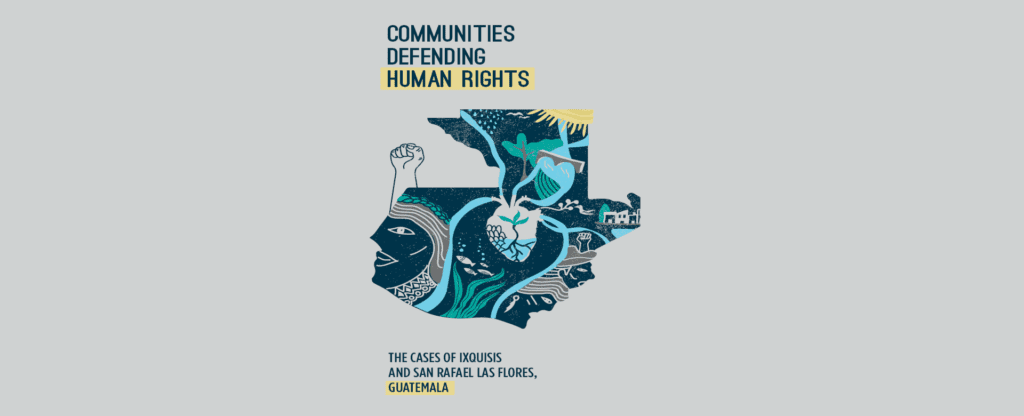Representatives from the Peaceful Resistance of the Microregion of Ixquisis and the Peaceful Resistance of Santa Rosa, Jalapa, and Jutiapa, a movement representing the Xinka indigenous people affected by extractive projects, have just concluded a European tour. The defenders carried out advocacy and awareness-raising activities, presenting to both European citizens and decision-makers their cases, ones which highlight the troubling violations of human and environmental rights in Guatemala.
Guatemalan land, in particular Indigenous territories, is currently invaded by extractive mega-projects such as hydroelectric dams, mining, agro-industry, and monocultures (sugarcane, banana, and palm oil). As a result, the customs and collective rights of indigenous peoples are at risk. In 2018, two indigenous women human rights defenders carried out a similar advocacy tour, denouncing the threats, defamations and murders
Guatemalan Human Rights Defenders live in an ever-growing state of threat due to the installation of such megaprojects that privatize and extract their resources. These extractive activities are carried out without open, prior, and informed consent of the communities, and are financed by international development banks. According to Frontline Defenders Global Analysis 2018 Front Line’s Global Analysis 2018, 26 women human rights defenders were murdered in Guatemala, a 136% increase from the number killed in 2017. Parallel to these assassinations, campaigns of defamation, disinformation, stigmatization and discrediting of human rights defenders are a daily occurrence in Guatemala.
The reality for Guatemalan defenders is troubling, reinforced by a lack of public policies that protect their right to defend human and environmental rights, despite a ruling of the Inter-American Court of Human Rights![]() to create such public policies. No political will to carry out this process is present, and as a result, the extractivist economic model is booming in the country, reinforced by the state and its public institutions.
to create such public policies. No political will to carry out this process is present, and as a result, the extractivist economic model is booming in the country, reinforced by the state and its public institutions.
Organized jointly by the non-governmental organizations Farmacéuticos Mundi (Farmamundi), Protection International (PI), and Cadena para un Retorno Acompañado (CAREA), this 2019 tour aimed to follow up on the 2018 advocacy tour, as well as introducing more cases to both civil society and decision-makers, including the European Parliament, the European External Action Service, the European Commission and Member States of the EU, mainly Germany and Spain.
For more information about the situation of Women and Men Human Rights Defenders in Guatemala:


